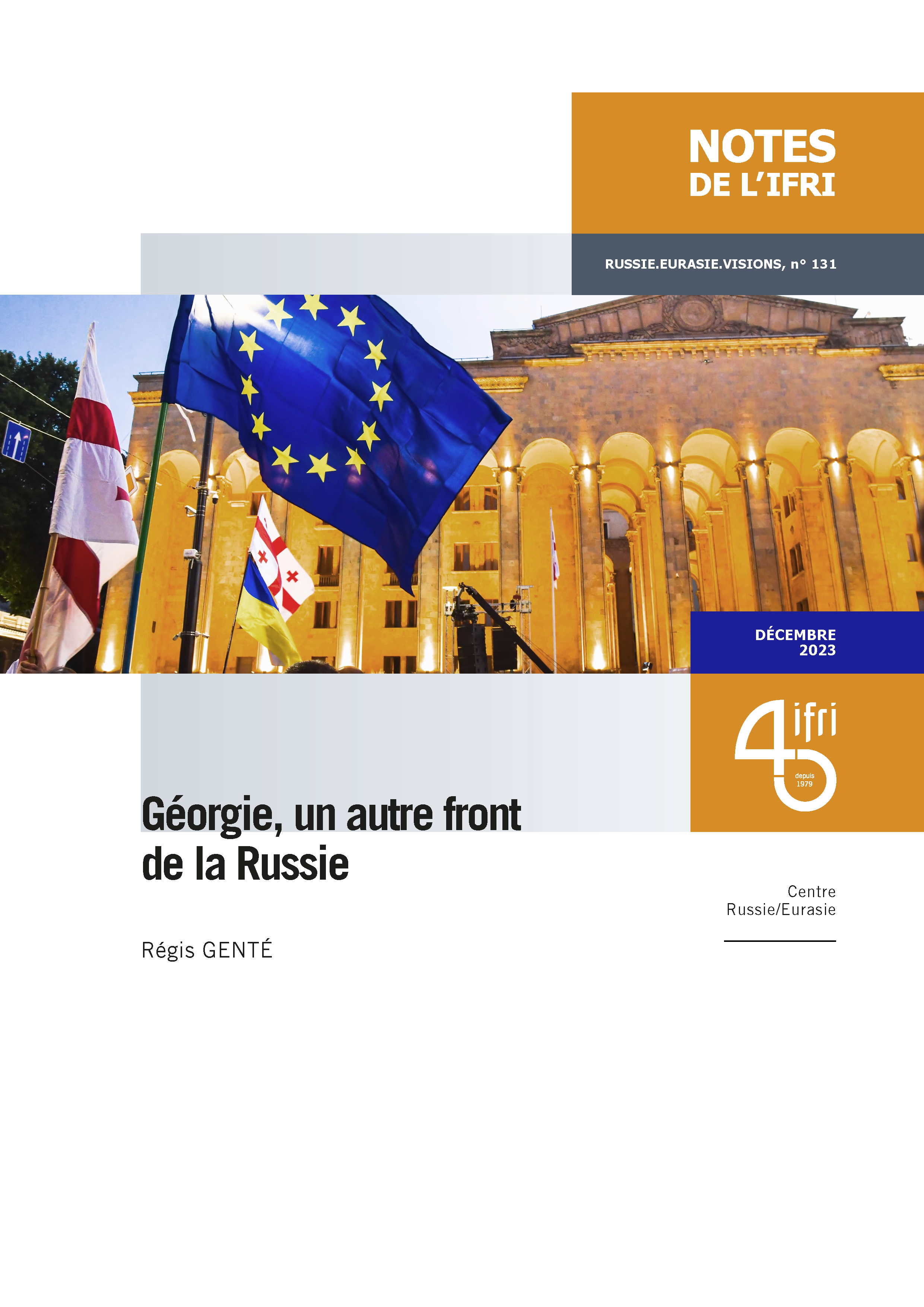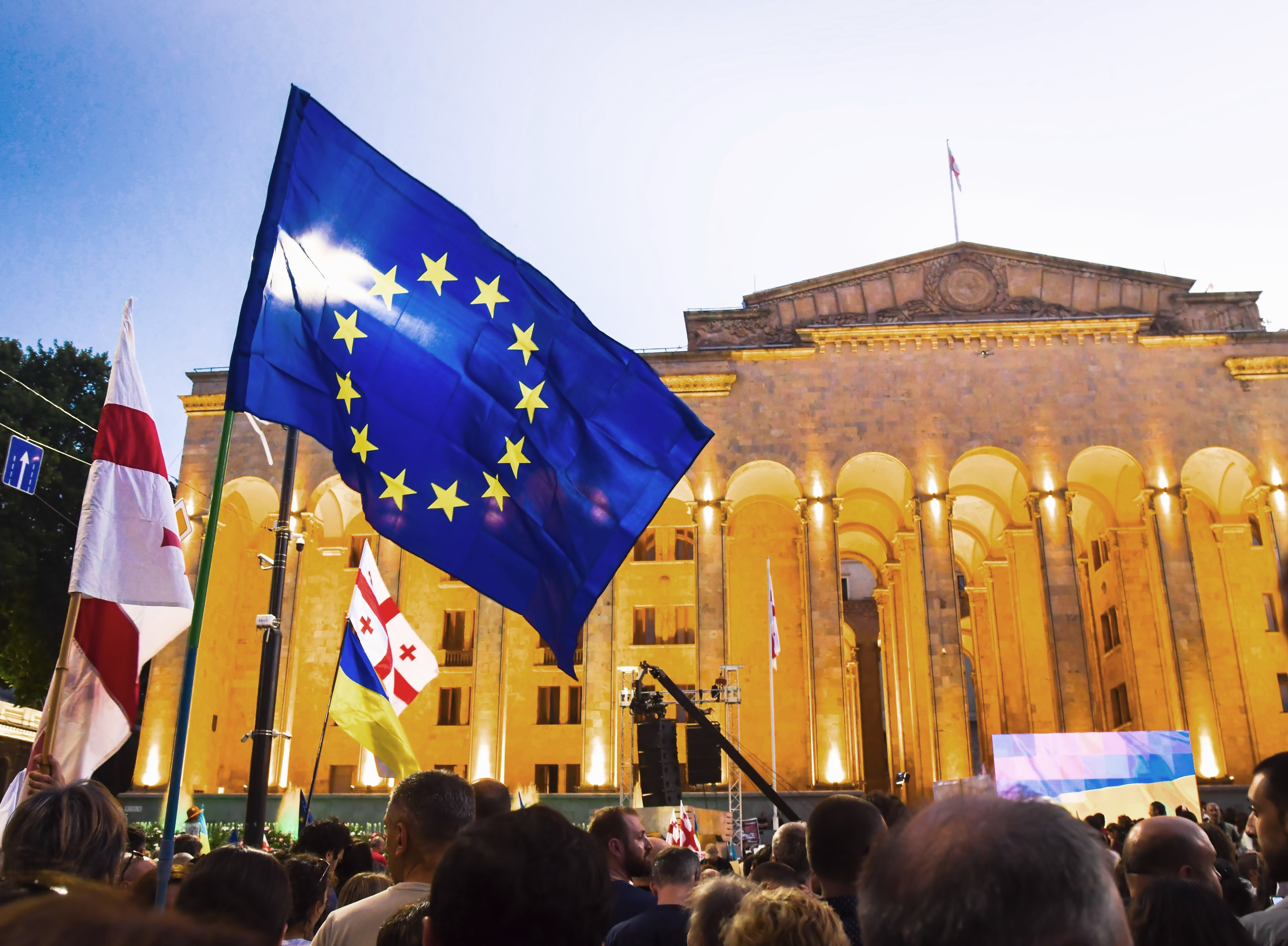Georgia: Another Russian Front

The end of 2023 is due to mark a turning point in Georgian history. In December, the European Council will decide whether to award the country European Union (EU) candidate status.

For the majority of Georgia’s 3.7 million citizens, this decision is extremely important, as 81 percent of them say that they want their country to join the EU. However, the government and the ruling party Georgian Dream, under the informal control of the oligarch Bidzina Ivanishvili, have consistently acted contrary to this deeply rooted popular desire since coming to power, taking a foreign policy approach, at least since 2021, that has undermined relationships with Western partners and brought the ex-Soviet republic back into Russia’s sphere of influence. After twenty years of pro-European policy, this divergence between Georgia’s rulers and its population has provoked a succession of political crises in the country over the last few years. Moscow is supporting this dramatic shift in Tbilisi’s strategic orientation and may even have initiated it. Numerous indicators show that in practice Russia, which waged war against Georgia in 2008, continues to regard its neighbor as another battlefield in its confrontation with the West. These developments in Georgian politics presage the emergence of major political and geopolitical tensions.
Régis Genté has been a journalist and specialist in the former Soviet bloc since 2002 and is based in Tbilisi (Georgia).
Download the full analysis
This page contains only a summary of our work. If you would like to have access to all the information from our research on the subject, you can download the full version in PDF format.
Georgia: Another Russian Front
Related centers and programs
Discover our other research centers and programsFind out more
Discover all our analysesThe Caspian Sea as an Emerging Energy Hub : Potentials and Limitations
This report analyzes the prospects of the Caspian Sea region — and its key actors except for Russia and Iran — becoming an important energy hub serving the needs of the European Union (EU).
The European Union's Strategic Test in Georgia
The political crisis brewing in Georgia is of an existential nature for the country. What is at stake is Georgia's future as a democratic and sovereign European nation (EU).
Commanders of Putin's Long War: Purged, Reshuffled and Disgruntled
The trend of reshuffling the Russian top military command in the course of a fast-evolving and far from successful war has progressed unevenly both across the Armed Forces’ structures and in time. The rationale for and timing of the abrupt cadre decisions made by Commander-in-Chief Putin often defy logical explanation, and the rare official clarifications are no more informative than the usual information blackout.
Russian Military Manpower After Two and a Half Years of War in Ukraine
In addition to a military victory in Ukraine, the Russian leadership is planning to build up sizable troop formations for a possible conflict with NATO in the Baltic region and the Kola Peninsula. In particular, current plans aim for the military manpower to grow by about 350,000, reaching a total of 1.5 million soldiers and commanders. In the context of the current conflict in Ukraine, this cannot be accomplished without a new wave of mass mobilization.










